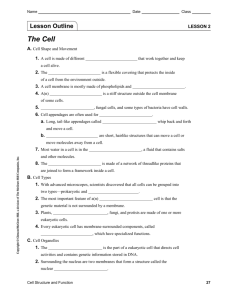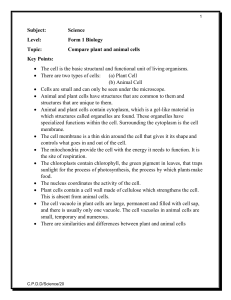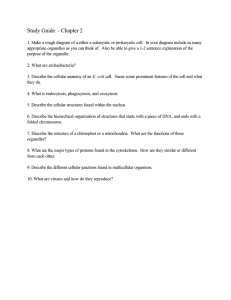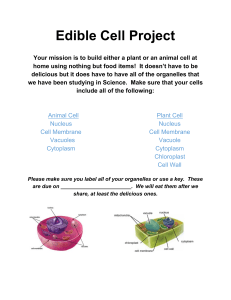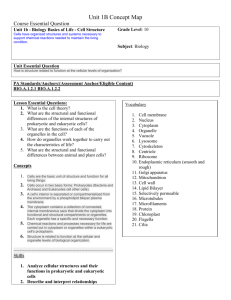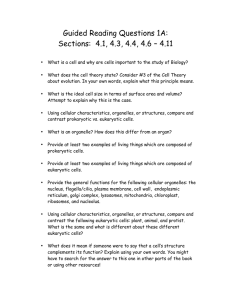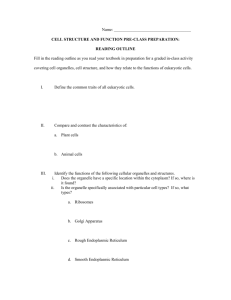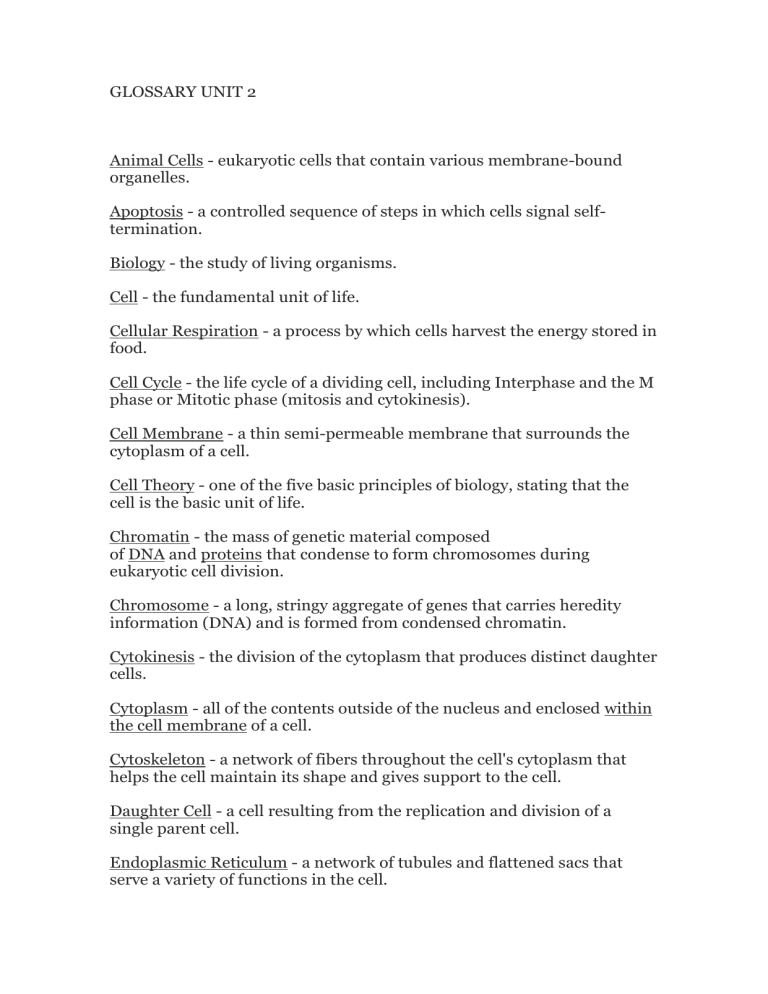
GLOSSARY UNIT 2 Animal Cells - eukaryotic cells that contain various membrane-bound organelles. Apoptosis - a controlled sequence of steps in which cells signal selftermination. Biology - the study of living organisms. Cell - the fundamental unit of life. Cellular Respiration - a process by which cells harvest the energy stored in food. Cell Cycle - the life cycle of a dividing cell, including Interphase and the M phase or Mitotic phase (mitosis and cytokinesis). Cell Membrane - a thin semi-permeable membrane that surrounds the cytoplasm of a cell. Cell Theory - one of the five basic principles of biology, stating that the cell is the basic unit of life. Chromatin - the mass of genetic material composed of DNA and proteins that condense to form chromosomes during eukaryotic cell division. Chromosome - a long, stringy aggregate of genes that carries heredity information (DNA) and is formed from condensed chromatin. Cytokinesis - the division of the cytoplasm that produces distinct daughter cells. Cytoplasm - all of the contents outside of the nucleus and enclosed within the cell membrane of a cell. Cytoskeleton - a network of fibers throughout the cell's cytoplasm that helps the cell maintain its shape and gives support to the cell. Daughter Cell - a cell resulting from the replication and division of a single parent cell. Endoplasmic Reticulum - a network of tubules and flattened sacs that serve a variety of functions in the cell. Gametes - reproductive cells that unite during sexual reproduction to form a new cell called a zygote. Gene Theory - one of the five basic principles of biology, stating that traits are inherited through gene transmission. Genes - segments of DNA located on chromosomes that exist in alternative forms called alleles. Golgi Complex - the cell organelle that is responsible for manufacturing, warehousing, and shipping certain cellular products. Lysosomes - the membranous sacs of enzymes that can digest cellular macromolecules. Mitochondria - cell organelles that convert energy into forms that are usable by the cell. Mitosis - a phase of the cell cycle that involves the separation of nuclear chromosomes followed by cytokinesis. Nucleus - a membrane-bound structure that contains the cell's hereditary information and controls the cell's growth and reproduction. Organelles - tiny cellular structures, that carry out specific functions necessary for normal cellular operation. Plant Cells - eukaryotic cells that contain various membrane-bound organelles. They are distinct from animal cells, containing various structures not found in animal cells. Prokaryotes - single-celled organisms that are the earliest and most primitive forms of life on earth. Ribosomes - cell organelles that are responsible for assembling proteins.
